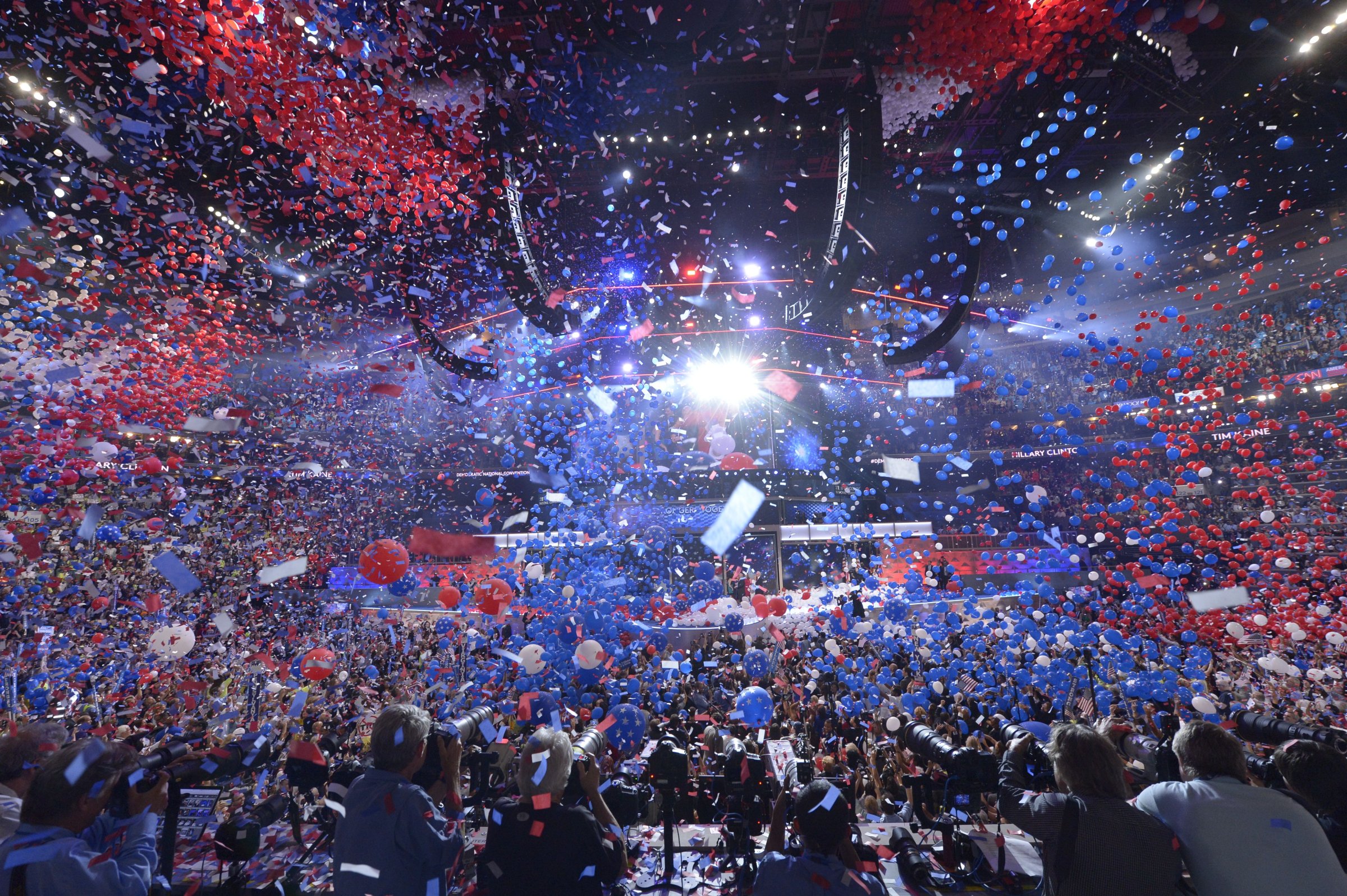
(Bloomberg) — Democrats voted Saturday to dramatically reduce the influence of superdelegates on the party’s presidential nomination process, part of an effort to move past the fissures of the 2016 election as candidates begin gearing up for the next one.
The 700 or so superdelegates — party leaders including Democratic National Committee members, members of Congress, and former Democratic presidents — will no longer be able to vote in the first round of balloting at the party’s 2020 convention unless there’s already a clear winner based on the results of the party’s primaries and caucus.
If the nominating process moves past a first round, something that hasn’t happened since 1952, superdelegates would be able to vote.
The measure passed by a voice vote at the party’s summer conference in Chicago, with a small fraction of those present voting against it. “Today we demonstrated the values of the Democratic Party,” DNC Chairman Tom Perez said after the vote.
Earlier, Perez called for “a clear statement to people who share our values that we trust you and we’re going to take some bold measures to earn your trust so you will join our party and join our fight to take back our democracy.”
The move is an effort to push back against what even many party leaders acknowledged were perception problems leading voters to conclude that insiders had an outsized role in selecting the party’s presidential candidate in 2016.
Sanders’s Demands
There had been fights over the superdelegate system during the drawn-out 2008 primary battle between Barack Obama and Hillary Clinton. But it was only after Senator Bernie Sanders and his supporters spent months in 2016 complaining about the mechanism and demanding structural reforms that the DNC started down the path of an overhaul.
In 2016, the Sanders camp argued that superdelegates had the power to overturn what they said was the will of the Democratic primary electorate with their votes at the party’s convention. They also agitated as former Secretary of State Clinton, in her second run for the Democratic nomination, secured the backing of the vast majority of the superdelegates early on in the primary process.
Defenders of superdelegates note that, in the more than three decades since they were created, their votes have never changed the outcome of the party’s primaries and caucuses. Superdelegates comprised about 15 percent of the total delegates to the 2016 convention; only if the vast majority of them had supported Sanders would he have been able to win the nomination, overcoming Clinton’s 400-delegate edge over Sanders following months of primaries and caucuses.
Reform Commission
With Sanders supporters upset about a process they saw as unfair to their candidate, the DNC agreed to create the Unity Reform Commission, composed of both Clinton and Sanders supporters, to work through concerns about the DNC, including the superdelegate system.
After eight months of meetings and draft proposals, the panel settled on a plan which scales back a system created after the intra-party fights of the 1980 nominating process and Jimmy Carter’s loss to Ronald Reagan.
On Aug. 23, the DNC’s Rules and Bylaws Committee fielded last-ditch efforts to modify the plan, including one measure that would have allowed superdelegates to vote on the first ballot but required that they make no indication of who they support until the end of primary season, or agree to forfeit their votes if opting to endorse a candidate.
Solution Seeks Problem
Before Saturday’s vote, Don Fowler, a former chair of the DNC and the South Carolina Democratic Party, warned members that the changed policy would “disenfranchise” hundreds of people of color who are among the superdelegates.
Representative Cedric Richmond of Louisiana, chairman of the Congressional Black Caucus, warned in a letter to Perez last week that the plan amounted to “a solution in search of a problem. Unelected delegates have never gone against the will of primary voters in picking Democratic presidential nominees.”
The DNC also voted Saturday to add rules aimed at making primaries more accessible to any Democrat who wants to participate, including permitting same-day party switching to the Democratic Party. It’s a measure aimed at appealing to Sanders supporters and others who don’t typically consider themselves Democrats.
In addition, DNC members voted to require candidates for the 2020 presidential nomination to agree that they’re members of the party, and that they’ll serve as Democrats if elected.
That’s a measure that, on its face, is aimed squarely at Sanders, who represents Vermont in the Senate as an independent and who’s declined to join the party, even as he’s sought its presidential nomination and pushed for reforms of party procedures. It’s also a way to ensure that future candidates who haven’t served in elected office will stay committed to the party that put them on the general election ballot in all 50 states.
More Must-Reads from TIME
- Cybersecurity Experts Are Sounding the Alarm on DOGE
- Meet the 2025 Women of the Year
- The Harsh Truth About Disability Inclusion
- Why Do More Young Adults Have Cancer?
- Colman Domingo Leads With Radical Love
- How to Get Better at Doing Things Alone
- Michelle Zauner Stares Down the Darkness
Contact us at letters@time.com